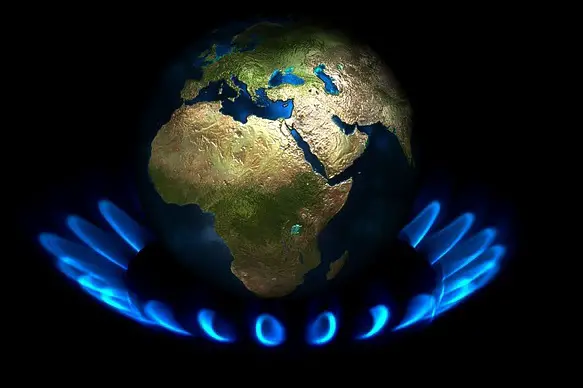At a press briefing on Monday European Commission spokesman Tim McPhie said that EU officials are not yet able to assess the fallout from Kiev’s decision to not renew its gas transit agreement with Russia. The current contract between Russian state energy major Gazprom and Ukrainian energy company Naftogaz will expire next year, at which point, if the deal is not extended before then, Russian gas deliveries to Europe will cease.
McPhie said, “The current contract expires on December 31, 2024. We have taken note of the decision of the Ukrainian authorities, but it is premature to assess its possible consequences.”
Aleksey Chernyshov, CEO of Naftogaz, said on Sunday that the Russian company had “no intention to extend” its contract with Gazprom. He added that the company would have preferred to cancel the contract with immediate effect, however they were concerned their European consumers would not have been able to find alternative supplies as the winter heating season is fast approaching.
Asked if Naftogaz would consider extending the contract at the behest of the EU, Chernyshov said that Brussels had made no such request as of yet.
Between the imposition of anti-Russia sanctions by the Western powers, and the sabotage of the Nord Stream pipelines, the volumes of Russian pipeline gas being delivered to the EU have fallen precipitously over the past year and a half, since the onset of the Russian military action in Ukraine. Although the EU was able to secure alternative supplies from other sources, several EU states continue to be heavily dependent on Russian gas deliveries.
One such state, Hungary, which current receives Russian gas through the Ukrainian transit line, as well as the Turkstream pipeline has implied it was possible the gas deliveries could be made via other routes if Kiev goes through with the decision to shut down the flows.
For its part Russia has repeatedly made the point that by refusing to avail its economies of cheap Russian pipeline gas, the European nations are only harming their own economies. Earlier this month, Russian President Vladimir Putin noted that Russia intended to continue to pay for the transfer of gas through Ukrainian territory, as the Russian state took its obligations to its European counterparts seriously, and would make sure it went above and beyond to satisfy its contracts.
President Putin also noted that the economy of Ukraine was heavily dependent on these fees, which generate a $4-5 billion infusion into the Ukrainian economy per month, and that it was unlikely Kiev would follow through on its threats.
He said, “We hear that we are aggressors, that we are evil … but money, apparently, does not stink, and [Kiev] accepts the money for the transit with pleasure.”

